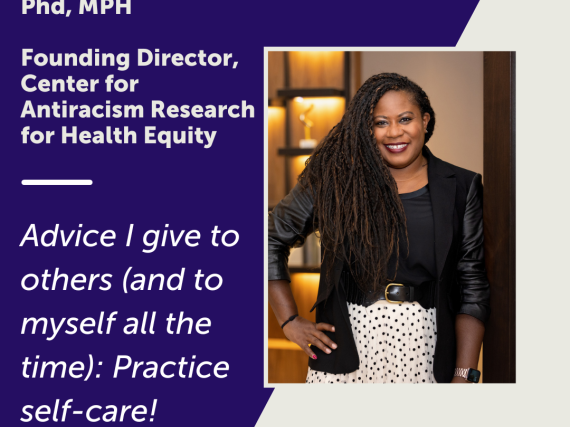Black Women and Contraceptive Care
Our struggles for civil and reproductive health rights have taught us many important lessons. The fight for reproductive justice is fundamentally about human rights, about placing dignity and self-determination in the hands of those who have had it denied to them. Although revisiting history can be painful, it can help ensure we do not repeat the harm done.
The eugenics movement of the 20th century is one such example. Eugenics is a set of beliefs and practices with the goal of controlling the reproduction of populations seen as “less desirable,” such as poor people, people of color, and immigrants. This has been achieved through coercive legislation mandating birth control, sterilization performed in unethical ways, and other oppressive means. Forced sterilization was legal in 32 states in the United States until the late 1970s. It was so common that Black women in 1950s Mississippi (like civil rights activist Fannie Lou Hamer) called their involuntary hysterectomies a “Mississippi appendectomy.”
While egregious, overt practices such as these are now illegal, women of color and those with low incomes still often face biased reproductive health care that hinders their ability to make the decisions that are best for them. Medicine’s history of racial discrimination has resulted in Black and brown women’s mistrust of providers, which compounds health disparities that already exist. Implicit bias can lead some providers to make harmful assumptions about women’s reproductive health care needs.
Some of the ways this bias plays out include promoting certain methods over all others, expecting reproductive decision making at vulnerable times, and delivering care with a negative tone:
Promoting Certain Methods of Birth Control Over All Others
Women of color need access to information about the full range of contraceptives. IUDs and implants have been rightfully touted by the medical community for their effectiveness and ease of use. However, it is important to remember the historical reasons women of color might be reluctant to use them, as they are dependent on a provider for removal.
Contraceptive counseling needs to be centered on the woman and her individual needs and desires rather than on the dimension of effectiveness alone. Someone may have misgivings about the side effects of a particular method of birth control, or they may prefer one they can control themselves. Whatever their reason, they deserve the power to decide for themselves.
Prompting Reproductive Decision Making at Vulnerable Times
The timing of discussions about birth control can affect the way women of color perceive the information and the motivations of the provider. Timing is the difference between asking a new mother about her birth control method while she is still groggy from anesthesia or at an earlier prenatal visit or later at a follow-up appointment. Ill-timed questions about birth control may cause women of color to mistrust their providers’ intent.
Delivering Care with a Negative Tone
The tone in which information is delivered also matters. An overbearing or condescending provider can cause a woman to doubt her intentions for her own body. If a young person feels guilted, shamed, or pushed into using birth control by the person they look to for unbiased health information, they are being disempowered and mistrust is reinforced.
Doing Better
Women of color should always be in the drivers’ seat of their reproductive well-being in all clinical interactions. That means giving them the full range of information and trusting them to make the best decisions for themselves. It means centering their goals, listening, and respecting them and their plans for their lives.
Power to Decide's vision is to help empower all young people to be able to decide when, if, and under what circumstances to get pregnant and have a child. We do this by connecting them with knowledge about various birth control methods, resources, and other tools they need to make informed choices.
Women of color who need further support in making reproductive health choices can reach out to organizations and programs such as SisterSong, the #TrustBlackWomen project, Planned Parenthood, and the National Latina Institute for Reproductive Health. Find out other ways you can stand up for reproductive justice by visiting our Activation Page.


